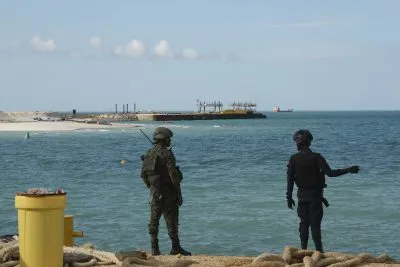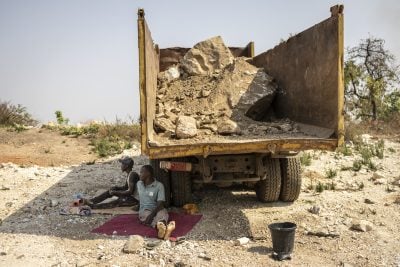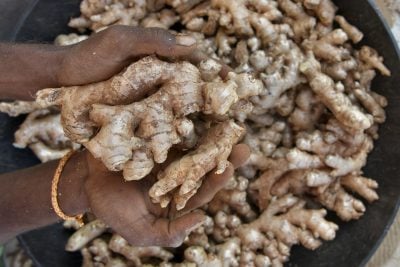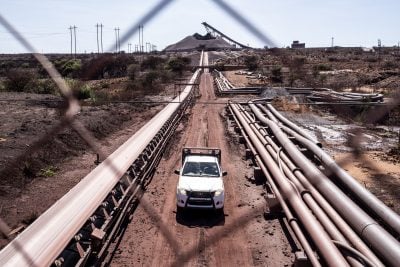Côte d’Ivoire’s gold sector has long held promise. Its neighbours Burkina Faso, Mali and Ghana have substantial reserve and geologists have often suggested that similarly rich deposits were plausible in Côte d’Ivoire too.
On 2 May, Canadian-headquartered Montage Gold announced licensing of its Koné project, in the northwestern départments of Kani and Dianra. Newspapers said that it will be the largest gold mine in Côte d’Ivoire and the third largest mine of its kind in West Africa. The company reports that the mine has reserves of around 4m ounces and is due to start production in 2027.
“If the estimates are accurate, this would enable the country to increase its yearly national gold production by roughly 20% once the project is underway. This could have significant repercussions on government revenues in the long term,” says Byron Cabrol, Sub-Saharan African analyst at Dragonfly Intelligence.,” “If the estimates are accurate, this would enable the country to increase its yearly national gold production by roughly 20% once the project is underway. This could have significant repercussions on government revenues in the long term,” says Byron Cabrol, Sub-Saharan African analyst at Dragonfly Intelligence.
The discovery is big news for Côte d’Ivoire, whose economy was for many years dominated by cocoa production.
Côte d’Ivoire is the world’s largest producer of cocoa, and the sector employs nearly 1m farmers, who provide an income to 5m people, around one fifth of the Ivorian population. It is the country’s leading foreign exchange earner and is the cornerstone of the Ivorian economy.
President Alassane Ouattara has, however, been determined to diversify away from a reliance on cocoa, which has recently hit record high prices amid disease outbreaks and destructive weather patterns in West Africa, which have led many farmers to abandon the crop.
Enter gold
“Gold is vital to Côte d’Ivoire’s economic diversification efforts,” says Mucahid Durmaz, senior Africa analyst at risk intelligence company Verisk Maplecroft.
“The discovery will accelerate the government’s efforts to establish the extractive sector as a critical source of revenue and shield its commodity-dependent economy from price volatility in international markets.”
The government has announced that gold output reached 48 tonnes in 2022, up 14% from the previous year. Forecasts for 2024 are as high as 55 tonnes. New discoveries and developments seem set to be unearthed as the government encourages more investment in the sector.
“The value of Côte d’Ivoire’s gold exports has grown fairly significantly in recent years; it was the second most valuable export in 2022 behind cocoa. The beginning of this project, as well as the opening of other major gold mines in recent months, suggests the authorities are putting an emphasis on gold exploration,” says Cabrol.
The focus on gold is particularly advantageous at a time when many of the other gold producers in the region are facing considerable instability.
“Given that major political upheavals and insecurity are adversely impacting gold production in Burkina Faso, Mali and Guinea, Côte d’Ivoire will position itself as an attractive business environment for gold operators,” according to Durmaz.
Gold is not the only sector which has benefited from a diversification drive by the Ouattara government. The oil and gas sector is also being pushed. Discoveries in recent years include the Baleine and Calao fields, which are the largest in Côte d’Ivoire. These developments have been quickly brought online with Baleine beginning production in recent months.
In a bid to improve its attractiveness as a resource destination, the government plans to undertake further drives to root out corruption, eliminate red tape and develop infrastructure that facilitates these sectors. In northern Côte d’Ivoire, where many of the mines are located, road development has been prolific over the past 10 years.
Boosting local participation
It is also possible that as these new sectors develop the government will seek to introduce more stringent local content requirements. Durmaz notes that although there are some efforts to improve the investment environment, more local content laws are on the horizon.
“The government is currently revising the 2014 Mining Code to increase local content in the gold sector and to speed up the processing of permit applications by investors. These changes don’t indicate a shift from Côte d’Ivoire’s generally pro-foreign investment regulatory regime.”
In many cases, despite the increased rhetoric surrounding local content and greater benefits for Ivorians from natural resources, the status quo remains prevalent.
“Montage Gold reportedly own 100% of the mine [the Koné project]. This will probably limit government revenues from the mine and constrict the scale and scope of social programmes there,” says Cabrol.
Still, a public campaign for greater benefits for local operators and citizens is underway and has already been seen to a certain extent with the oil and gas sector. In recent months, the government has called for foreign businesses to comply more strictly with local content laws, lamenting that they are too often circumvented.
Drives towards increased local content are also likely connected to a determination to avoid jihadist encroachment in the country. In countries in the Sahel, the failure to redistribute resource revenues has been a source of much frustration and has been an easy campaign tool of jihadist groups and coup leaders alike.
In northern Côte d’Ivoire in recent years, development initiatives have been central to the government’s counterterrorism policy, which appears to be having some impact: Côte d’Ivoire has had no major jihadist assaults in the north of the country since late 2022.
Ouattara’s Midas touch?
The new discoveries and the vast developments in the natural resource sectors in Côte d’Ivoire could have political implications too. The discoveries are likely to bolster government coffers in a way that may tempt President Ouattara to consider a fourth term bid in 2025.
He is already widely rumoured to be thinking about this and many ruling party stalwarts are openly calling for him to do so. In some respects, the gold find may prove to have more political than economic value.
“The major gold discovery, on top of the big oil finds, has much more of a symbolic than actual value in emphasising that President Alassane Ouattara has the Midas touch,” says Martin Roberts, associate director at S&P Global Market Intelligence.,” “The major gold discovery, on top of the big oil finds, has much more of a symbolic than actual value in emphasising that President Alassane Ouattara has the Midas touch,” says Martin Roberts, associate director at S&P Global Market Intelligence.
“The impression almost that he can do no wrong is likely helping to clear any potential obstacles to a fourth term for Ouattara in late 2025, should he want to stand.”
But critics say a fourth Ouattara term would be a violation of democratic norms. More than 60 people died in election violence in 2020 when Ouattara stood for a third term that critics said was unconstitutional.
The new natural resource wealth that is set to start flowing into the country increases the stakes further.
Want to continue reading? Subscribe today.
You've read all your free articles for this month! Subscribe now to enjoy full access to our content.
Digital Monthly
£8.00 / month
Receive full unlimited access to our articles, opinions, podcasts and more.
Digital Yearly
£70.00 / year
Our best value offer - save £26 and gain access to all of our digital content for an entire year!
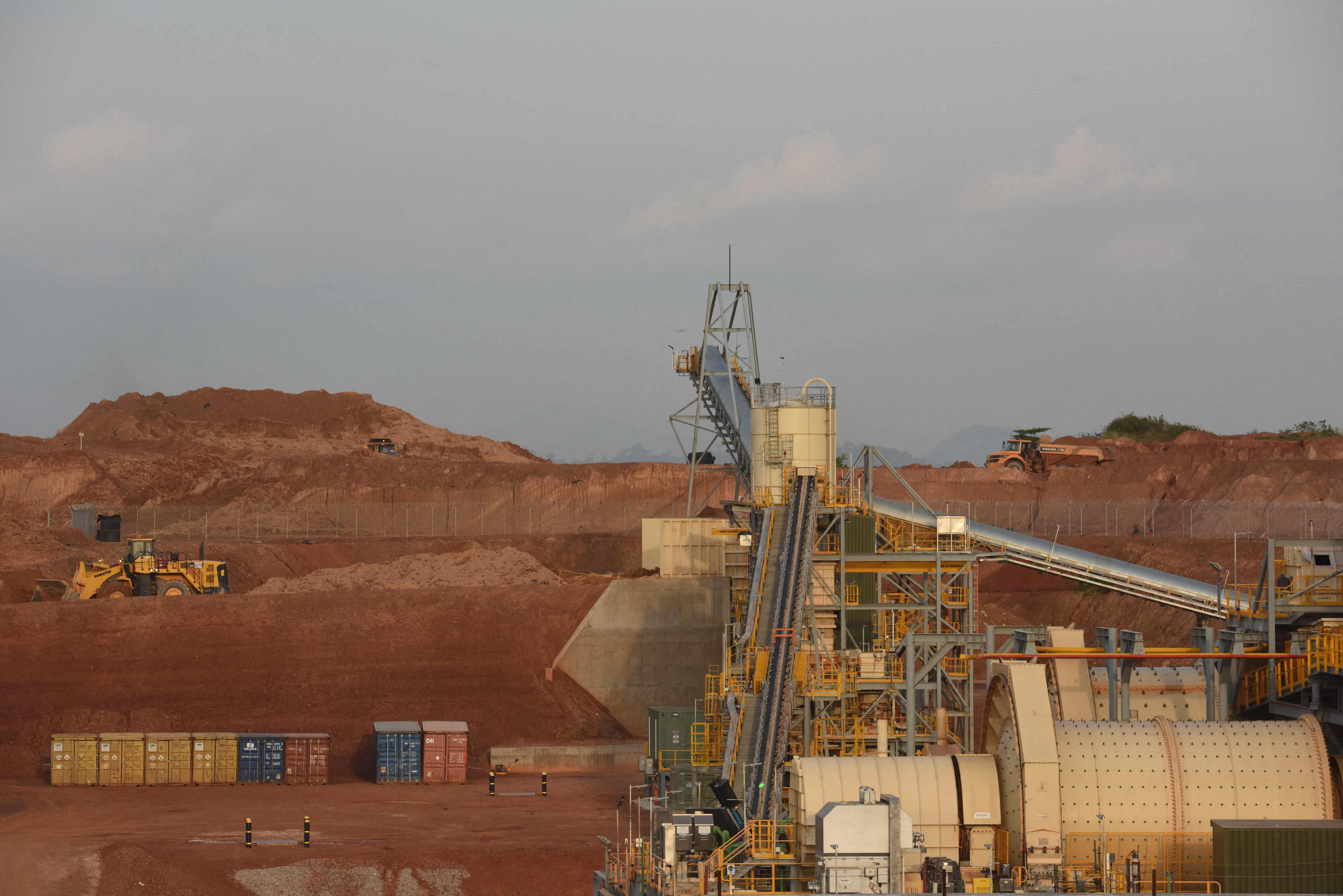
 Sign in with Google
Sign in with Google 
